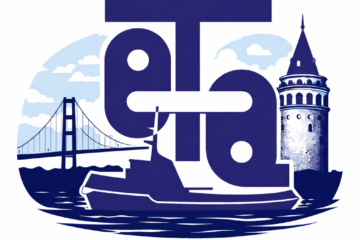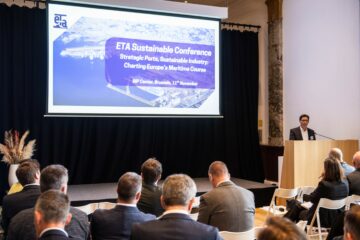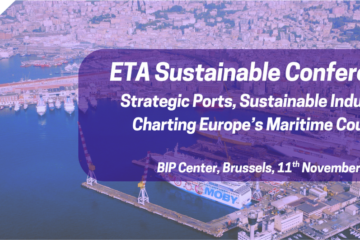The EU Commission presented the ‘Fit for 55’ package, which puts Europe at the vanguard of the fight against emissions and climate change. This package puts into law the increased EU climate ambitions, involving all polluting sectors in a common effort to reduce greenhouse gas emissions, the shipping sector as well.
Fit for 55 is a package of legislative and policy proposals which should help deliver on the European Climate Law target to reduce EU CO2 by at least 55% by 2030, and reach climate neutrality by 2050.
The package includes relevant initiatives for the towage sector: an Alternative Fuels Infrastructure Regulation (AFIR), an update of the Energy Taxation Directive, a new regulation proposal aiming at supporting the uptake of green fuels in shipping (FuelEU Maritime) and the extension of the Emissions Trading System to maritime transport (EU ETS).
FuelEU Maritime’s goal is to “stimulate the uptake of sustainable maritime fuels and zero-emission marine propulsion technologies by setting a maximum limit on the greenhouse gas content of energy used by ships calling at European ports”. The regulation proposal establishes limits on greenhouse gas intensity of the energy used on-board which become more stringent gradually, from a 2% reduction by 2025 to a 75% by 2050. Moreover, passenger ships and container ships are required to use onshore power supply in ports.
The EU Emissions Trading System is the European carbon market in which this type of emissions are capped and traded among the market operators. The Commission’s intention is to extend the EU’s Emissions Trading System to cover CO2 emissions from large ships (above 5000 gross tonnage). The extension will include all emissions from ships calling at an EU port for voyages within the EU (intra-EU) as well as 50% of the emissions from voyages starting or ending outside of the EU (extra-EU voyages), and emissions that occur when ships are at berth in EU ports. Nevertheless, the EU Commission will keep on working at the IMO level to create a similar global system.
The updated Energy Taxation Directive establishes minimum rates of taxation to encourage a switch to more sustainable fuels. The proposed rules introduce a minimum excise duty rate on the relevant fuels, while sustainable and alternative fuels will enjoy a minimum zero tax rate for a transitional period of 10 years.
The Alternative Fuels Infrastructure Regulation aims at fostering the deployment of the necessary infrastructure that will allow the greening of the transport modes, for example, supporting the development of ports as alternative and green fuels hubs (LNG, hydrogen, onshore power supply…).
“The European maritime towage sector has been among the first ones in the development and adoption of cleaner technologies. It is essential to have a constructive dialogue between policy makers and the maritime community to make these proposals as clear, coherent and efficient as possible. This legislation needs to avoid any measures that could affect the competitiveness of our sector as carbon leakage or unnecessary red tape, while ensuring a technology-neutral approach and the essential public funding to develop and adopt greener technologies”, says Anna Maria Darmanin, ETA Secretary General.
These legislative proposals will be discussed during the next months by both the Council and the EU Parliament before their formal approval.



0 Comments